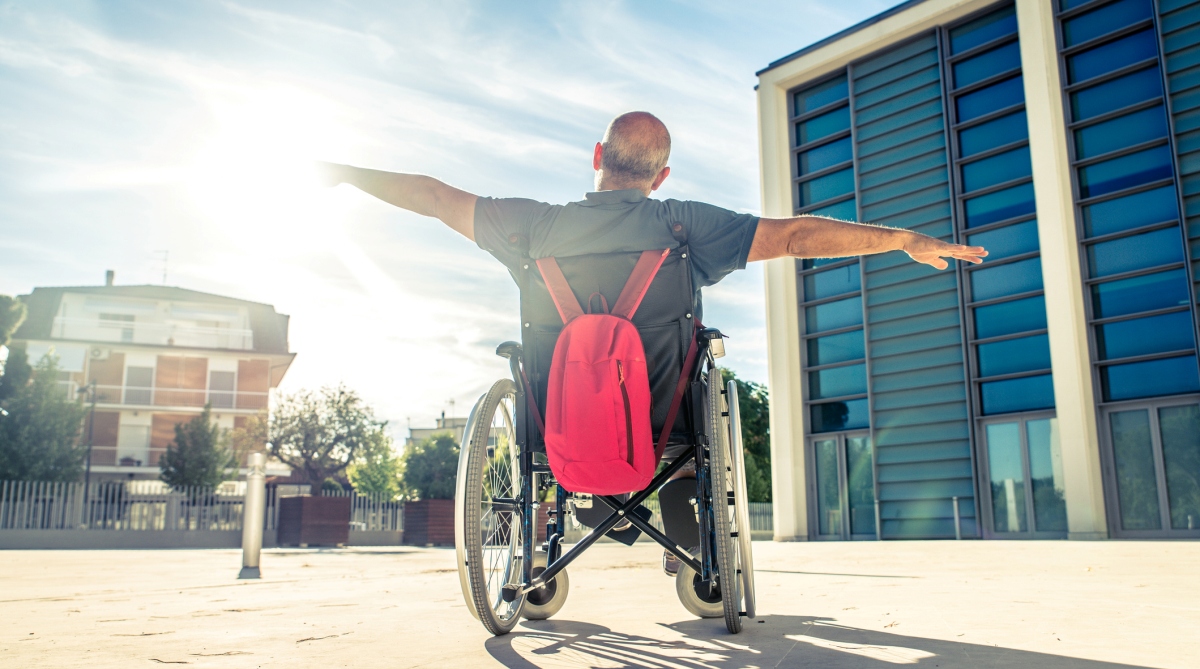Going by governmental records, only one per cent out of 12 million differently-abled children in India goes to school. In the job industry, about 63.66 per cent of the differently-abled population is unemployed compared to 60.21 per cent employment in rural and urban areas.
This figure obviously gives a reason to be worried. And, probably the solution for these marginalised groups could be the revival of education that would aim in achieving social transformation and justice. The story of inequalities still persists, but several narratives have given a ray of hope that a new approach towards education and its revival can bolster the situation of the differently abled child.
Arunima Sinha is an exemplary personality who showed the world how strong determinations lead her to become the first amputee to scale the Mount Everest. She is an example for several differently-abled across India. India should aim at empowering differently-abled persons with specific abilities that would open opportunities for them and would let them shine independently.
Some of the significant steps that have been taken by the government to educate differently-abled people include reimbursement of all expenditure incurred on books, uniform, and transport of a differently-abled student. Every girl child will be given Rs 200 per month and there will be five per cent admission of differently-abled students in all educational bodies. These directives act on the theme of United Nations Goals on International Disability Day 2018– “Empowering persons with disabilities and ensuring inclusiveness and equality”.
However, several other necessary steps are required in the entire process of education so as the inclusiveness of the process gets broadened.
Channelising abilities: The differently-abled needs to learn the daily basic living skills for independent living. Since they need the help of others for their daily chores, the basic approach of educational institutions should be first to train them how to channelise their abilities for everyday life.
Rendering special counselling: Counseling sessions are an essential tool that would help every child to realise their potential and build confidence, thereby developing a positive approach towards life.
Vocational Training: Every child needs an assessment of their skills and a chance to develop them to another level. Vocational training can help the differently-abled in forming a conception of basic skills like computer training, weaving, sports, etc. They can select any of the training based on their interest.
Quality education: A regular teacher is not always capable of understanding the needs of differently-abled students. The educational system should aim to train teachers professionally who can help students with disabilities to perfect their skills. According to UNICEF, there is a need to invest in teacher training, multi-sectoral approach, involve the community and promote accessible and inclusive learning space. This would not only involve these children in education and co-curricular activities but also help them to think ambitiously. Some of the areas in which they can think about making a career include:
Digital marketing: Internet has created its significant buzz and impact on marketing approach worldwide. Many businesses are digital today and even small shop owners have also started using virtual market with digital and social media presence. Students having a physical disability can see a lucrative career as a digital marketer post +2 examinations.
Mobile repairing: The refurbished smartphone market which is currently unorganised and driven by local brick and mortar retailers is also making its space online. There are institutions that provide the vocational course to physically handicapped humans at its Smart Village for differently abled, situated in Udaipur.
Web development: Small startups and new entrepreneurial ventures are increasing in the developing economy in India where businesses require having the digital presence for the more business benefits. Web development is also known as website development. This course requires creativity skills and passion for web development.
IoT and AI skills: New technology brings new challenges for mentors. While they continuously guide students towards the new technological developments, they themselves need to continuously adapt and stay updated about these.
Communication management: A Master of communication management programme focuses on effective communication strategies used by professionals in public relations, advocacy, and negotiation. Students learn ways to better utilise new and existing communication technology, such as websites, e-mail, and social media.
The writer is president, Narayan Seva Sansthan












